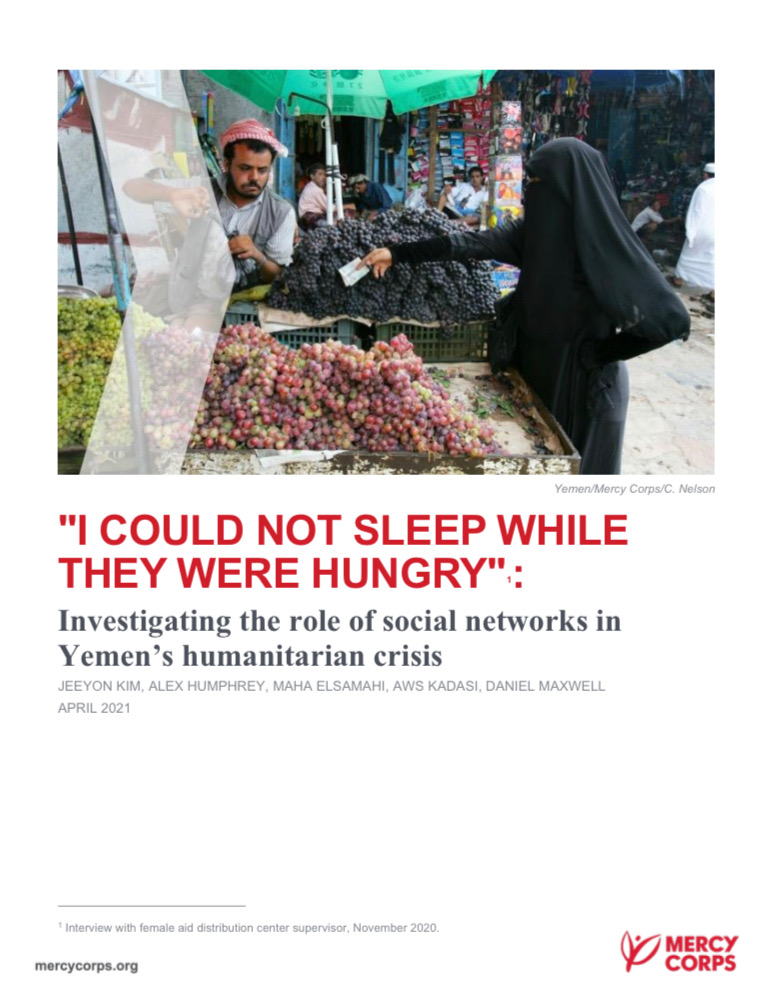Six years of civil war have left Yemenis in the grip of the world’s worst humanitarian crisis, with more than 16 million food insecure. While external aid is saving lives in Yemen, it is not necessarily the main source by which Yemenis cope during the ongoing crisis.
So how are Yemenis coping? Experts on food security in Yemen, research from other contexts, and Yemenis themselves point to an obvious, but often under-recognized source of support: Households are relying on their social connections and support networks for survival. Mercy Corps is undertaking research to help aid actors better understand how social connections are supporting coping and survival in Yemen.
This brief report presents initial findings from a study investigating the role of social networks in Yemen’s humanitarian crisis. It includes insights from interviews conducted with nearly 100 respondents in Taiz, Yemen. Initial findings suggest:
- Social networks are critical to the survival and coping of households, with socially connected households sharing both material and intangible resources with one another.
- New types of supportive relationships have emerged over the course of the conflict, while pre-existing social networks have continued to provide households critical support.
- Despite the key role these networks play, they have come under significant pressure and have been weakened by more than six years of conflict. Unpaid salaries, blockaded ports, depreciation of the currency, and fuel shortages have strained social connections, pushing these informal support networks close to the point of exhaustion.
- Humanitarian assistance has helped households maintain and build their social connections; however, opaque selection processes for aid recipients has contributed to a rise in social tensions and even at times undermined these informal networks of support.







